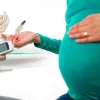Can PCOD lead to anxiety and depression?
Polycystic Ovary Syndrome (PCOS) is a common hormonal disorder that affects women of reproductive age. It is characterized by irregular periods, excess androgen levels, and polycystic ovaries. While the physical symptoms of PCOS are well-documented, its impact on mental health, particularly in relation to anxiety and depression, is less widely understood.
Understanding the Link between PCOS and Mental Health
Hormonal Imbalance and Mood Disorders
PCOS is often associated with hormonal imbalances, particularly elevated levels of androgens such as testosterone. These imbalances can have a significant impact on mood regulation and emotional well-being. Fluctuating hormone levels can contribute to mood swings, irritability, and emotional distress, all of which are linked to an increased risk of anxiety and depression.
Body Image Concerns
Women with PCOS may experience symptoms such as weight gain, acne, and excessive hair growth, which can affect their self-esteem and body image. These physical changes, combined with societal pressure to conform to certain beauty standards, can lead to feelings of inadequacy, low self-confidence, and negative self-perception, all of which are risk factors for anxiety and depression.
Fertility Challenges
PCOS is a leading cause of infertility in women. The struggle to conceive, coupled with the uncertainty surrounding reproductive health, can be emotionally taxing and may lead to feelings of hopelessness, anxiety about the future, and even depression. The emotional impact of fertility challenges should not be underestimated, as it can have far-reaching effects on mental well-being.
Chronic Stress
Living with a chronic condition like PCOS can be physically and emotionally demanding. The need for ongoing medical management, lifestyle modifications, and the uncertainty of symptom management can create chronic stress, which is a known contributor to anxiety and depression. The persistent nature of PCOS-related challenges can take a toll on mental health over time.
Seeking Support and Treatment
Holistic Approach to Care
It’s essential for individuals with PCOS to receive comprehensive care that addresses both the physical and emotional aspects of the condition. This may involve a multidisciplinary approach, including gynecologists, endocrinologists, mental health professionals, and nutritionists, to provide holistic support.
Mental Health Screening
Given the potential impact of PCOS on mental well-being, regular mental health screenings should be integrated into the standard care protocol for individuals with PCOS. Early identification of anxiety or depression allows for timely intervention and support, improving overall quality of life.
Lifestyle Interventions
Lifestyle modifications, such as regular exercise, balanced nutrition, and stress management techniques, play a crucial role in managing both the physical and emotional symptoms of PCOS. These interventions can positively influence mood, reduce anxiety, and alleviate depressive symptoms.
Therapy and Support Groups
Therapeutic interventions, such as cognitive behavioral therapy (CBT) and support groups, can be invaluable for individuals with PCOS who are experiencing anxiety and depression. These resources provide a safe space to address emotional challenges, develop coping strategies, and foster a sense of community and understanding.
Introducing Fitpaa: A Holistic Wellness Solution
While managing PCOS and its associated mental health concerns can be complex, innovative solutions like Fitpaa offer personalized support and guidance to individuals seeking to improve their overall well-being. Fitpaa’s comprehensive approach, which combines medical nutrition therapy, fitness coaching, and real-time guidance, is designed to address the diverse needs of individuals with PCOS, empowering them to achieve their health and fitness goals with confidence and certainty.
Fitpaa’s Unique Offering
Fitpaa’s AI-driven metabolism monitoring and management technology is tailored to optimize the 11 organ systems, including the endocrine system affected by PCOS. By providing personalized Fitpaa Capsules that integrate medical therapy, exercise therapy, nutrition therapy, and cognitive behavior therapy, Fitpaa aims to support individuals in managing their PCOS symptoms while enhancing their overall well-being.
Real-Time Support and Guidance
Fitpaa’s real-time guidance technology, grounded in principles of habit building and purpose-finding from cognitive behavioral therapy, offers continuous support and motivation. By releasing mood-boosting hormones and providing personalized guidance throughout the day, Fitpaa fosters a positive mindset and empowers individuals to take meaningful steps towards their health and fitness goals.
Commitment to Well-Being
At Fitpaa, the mission is to help individuals achieve their health and fitness goals with guaranteed results. The platform goes beyond traditional health and fitness apps by offering a lifetime-validity, goal-oriented service that prioritizes the well-being and satisfaction of its users. Fitpaa’s commitment is underscored by its risk-free trial, flexible subscription options, and a promise of complete money-back guarantee if the promised results are not achieved.
Embracing a Healthier Future
In conclusion, the impact of PCOS on mental health, particularly in relation to anxiety and depression, is a significant concern that warrants attention and support. By recognizing the interplay between physical and emotional well-being, and by engaging with innovative solutions like Fitpaa, individuals with PCOS can embark on a journey towards holistic wellness, empowered by personalized care, real-time guidance, and a steadfast commitment to their health and fitness goals.









